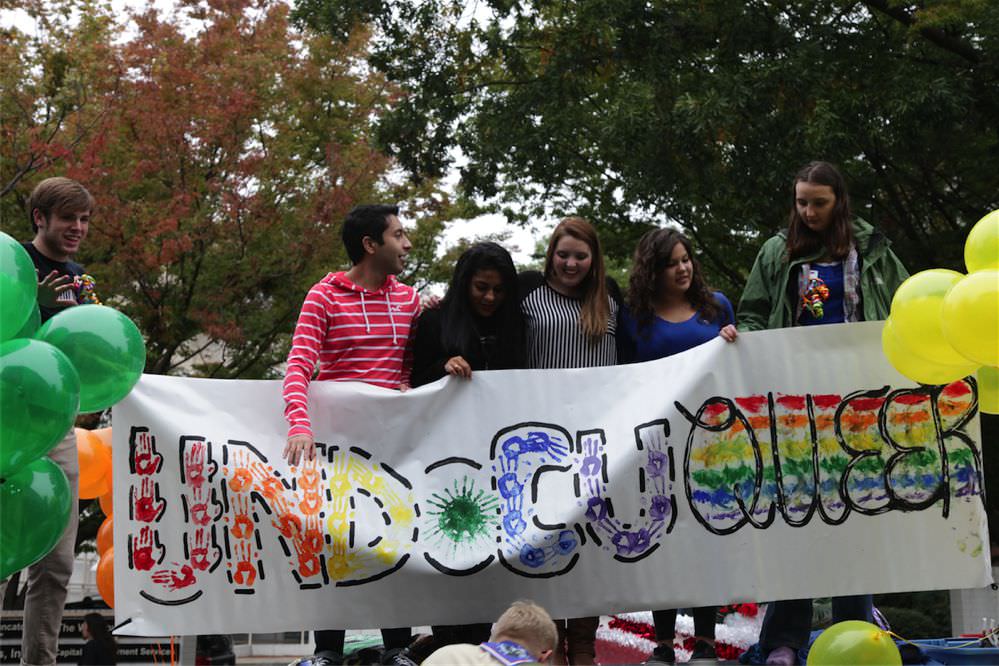On Jan. 27, the Union for Gender Empowerment (UGE) at McGill hosted a virtual screening of the documentary Forbidden: Undocumented and Queer in Rural America, which follows Moises Serrano, a young, undocumented, gay man. Directed by Tiffany Rhynard, Forbidden’s 88 minutes immerse viewers in Serrano’s life and his grapple with the various socio-political tensions underlying his identity. Released on July 12, 2016 and screened one week after President Joe Biden’s inauguration, the film is a historical marker of the impact of recent discriminatory legislation in the United States.
The film opens with the provoking cries from a familiar face. He rallies the crowd, persuades them, and calls for a solution to a shared “issue.” His audience cheers, enthralled with the seemingly new possibilities. The familiar face was then-candidate and now-former President Donald Trump, uniting his supporters around building a wall at the Mexico-U.S. border. The frame then shifts to a large group of undocumented immigrants, Serrano among them, at a pro-immigration demonstration in Greensboro, North Carolina, where a pastor recalls a main tenet in the Bible: Treat others right. One minute into the movie, the audience witnesses the uneven war where one side wants “their” country “back” while the other side wants freedom and humanity. Rhynard’s opening draws battle lines between politics and reality, and in continuing to mix major political decisions with Serrano’s impassioned speeches and snippets from his life, she situates Serrano and others’ stories into a broader context.
The son of Mexican, undocumented immigrants, Serrano grew up in Yadkinville, North Carolina, a rural farming town an hour outside of Charlotte. Despite its diversification as part of the “New South,” North Carolina has been a bastion of cultural conservatism, recently under scrutiny for the now semi-repealed 2016 Bathroom Bill. At the height of the conservative mid-2000s, Serrano was in high school, hiding the fact that he was gay and undocumented. Yadkinville was especially hostile, with some townspeople connected to the Klu Klux Klan, often staking out white crosses on porches. The camera rolls over the open lands, sprawling and without trees, prompting the question—where can minorities hide? But, as immigration attorneys relay details about legislation, the second question is—why should they have to hide in the first place?
The film follows Serrano’s life up until the 2016 election. He starts a relationship with Brandon, a kind-hearted guy from town. Serrano’s activism extends to sit-ins, speeches at council meetings, and openly embracing his identity. After graduating from high school, he works to apply to university.
The audience grows up with Serrano as he hardens in the face of political injustices and its discontents. In recalling a meeting with Congresswoman Virginia Foxx, Serrano informs the audience of her repeated use of the slur “illegals.”
“She said, ‘I don’t support immigration reform, but I do support you personally,’” Serrano said, questioning whether that would make any difference.
The most gripping moments of the documentary occur when Serrano takes the camera into his own hands: In one powerful scene, he videotapes his reaction upon learning of the legalization of same-sex marriage in the U.S.
On the way, Serrano and other undocumented immigrants face the 2007 Real ID Act, the threat of mass deportations by the Bush and Obama administrations, and the introduction of the Deferred Action for Childhood Arrivals program. The pathway to citizenship for undocumented immigrants was—and still is—bleak and lengthy.
As the documentary ends, viewers are left empathizing with Serrano’s and others’ stories while watching the overarching reach of government first-hand. Four years of increased alienation due to Trump’s enabling of xenophobia and bigotry shows how much more progress needs to be made for queer and undocumented immigrants. With a new administration that promised to restore the country’s soul, the film asks its audience to hold its governments accountable, to push for humanity alongside concrete changes, and for inclusivity in the American dream.









